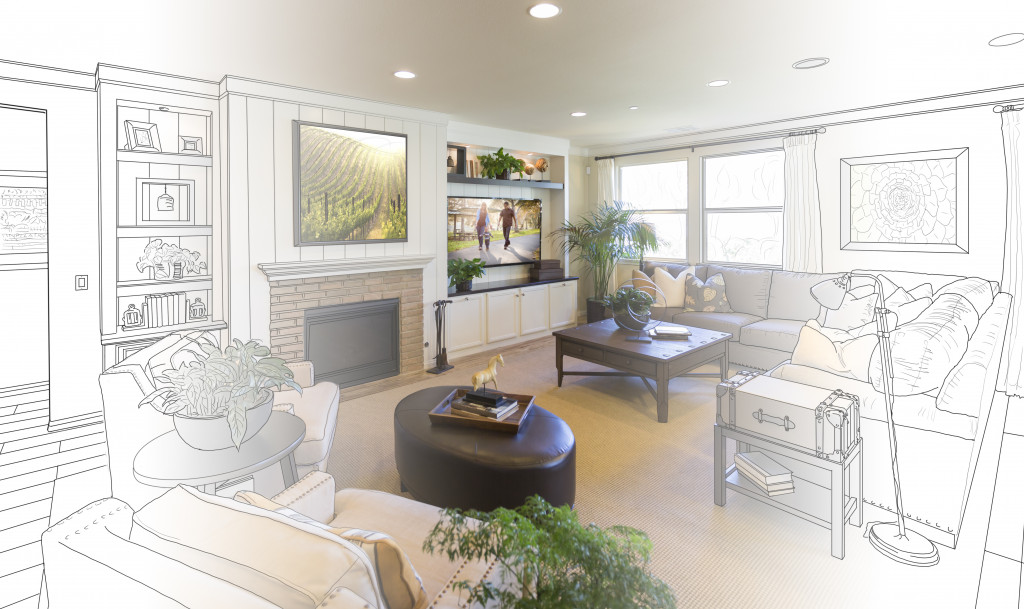As your family grows, so too does your need for space. But finding the perfect home for your growing brood can be easier said than done. You want to find a home with enough room for everyone to spread out, but you don’t want to break the bank. Here are a few tips to remember when hunting for a new home that will accommodate your growing family.
Tip #1: Consider Your Current and Future Needs
When you’re looking for a new home, it’s essential to consider both your current and future needs. For example, if you have young children, you might want a house with a backyard where they can play. But as they get older, you might want to be in a neighborhood with good schools. And when they reach adulthood, you might want to downsize to a smaller home or move closer to grandchildren.
By thinking about your needs both now and in the future, you’ll be better able to find a home that will grow with your family. Always keep your long-term goals in mind when searching for a new home. This will help you avoid outgrowing your space and moving again in a few years. If you’re unsure what your future holds, try to find a home with flexible space that you can adapt to meet your changing needs.
Tip #2: Location, Location, Location
They say location is everything, and that’s especially true when you’re choosing a new home for your family. You’ll want to consider the quality of the schools in the area, whether there are parks nearby, and if the neighborhood is safe. It would be best if you also thought about things like traffic and noise levels to ensure your family will be comfortable in your new home.
You can also look for a neighborhood with family-friendly residential home developments. These developments often have amenities like playgrounds and pools that your kids will love. They can also be a great place to meet other families with children the same age as yours. Depending on your budget, you might even be able to find a development with new construction homes with all the latest features and amenities.

Tip #3: Think About the Layout of the Home
The layout of a home can make a big difference when you have kids. For example, if you have young children, you might want to avoid houses with staircases. Or if you have kids who are always fighting, you might want to look for homes with separate living areas so they can have their own space. Keep the home layout in mind as you tour properties so you can picture how your family will live in the space.
You can always ask the real estate agent for more information about the homes you’re interested in. They can tell you more about the layout of the home and how it might work for your family. Tell them what you’re looking for, and they can help you find homes that meet your needs. But ultimately, you’ll want to choose a home that feels right for your family.
Tip #4: Don’t Forget About Storage
If you have a lot of stuff, you’ll want to ensure your new home has enough storage. This is especially important if you’re downsizing from a larger home. You’ll want to be sure you have enough space for all of your things, so your new home doesn’t feel cramped and cluttered. Look for homes with plenty of storage space, including closets, cabinets, and even a basement or attic. And if you’re really tight on space, you can always look for homes with creative storage solutions like built-in shelves and nooks.
Some homes even come with storage units that you can rent to store your things. This can be a great option if you don’t have a lot of space but still need to keep your things safe. Just be sure to ask about storage options before you sign a lease or buy a home. You don’t want to be stuck without a place to put your things.
Tip #5: Consider the Maintenance and Upkeep
Finally, you’ll want to think about the maintenance and upkeep of the home you choose. Some homes are easier to take care of than others. Bigger homes are usually more expensive to maintain, and older homes might need more repairs. If you’re not handy, you might want to avoid homes that require a lot of work. Otherwise, you could end up spending a lot of money on repairs and renovations.
It’s also essential to think about the long-term costs of owning a home. For example, you’ll need to budget for painting, landscaping, and replacing the roof and gutters. If you’re not sure you can handle the maintenance of a home, you might want to consider an apartment or condo instead.
Choosing a new home is an exciting but daunting task – especially when you’re doing it for a growing family. But by keeping these tips in mind, you’ll be sure to find a perfect fit for your brood. With a little bit of research and some help from a real estate agent, you’ll be in your new home in no time.
